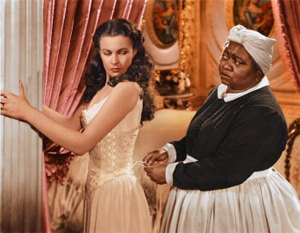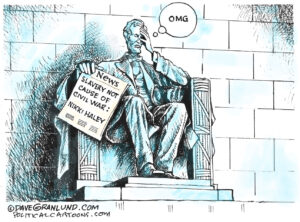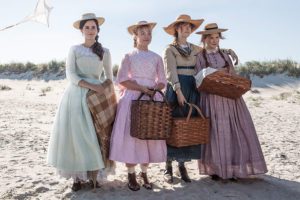‘Gone With the Wind’ Turns 70
For a film that's far from issue-free, what with its petulant, privileged protagonists and its sometimes squirm-inducing portrayal of racial and class politics during the last days of the Old South, "Gone With the Wind" has aged remarkably well over the last 70 years, and it still figures among the top cinematic success stories of all time.
For a film that’s far from issue-free, what with its petulant, privileged protagonists and its sometimes squirm-inducing portrayal of racial and class politics during the last days of the Old South, “Gone With the Wind” has aged remarkably well over the last 70 years, and it still figures among the top cinematic success stories of all time. –KA
Your support matters…The Wall Street Journal:
Unlike, say, “The Wizard of Oz,” from that same year, or “Casablanca,” from three years later, “Gone With the Wind” is not unobjectionable. How could it be? Its primary characters are rich white Southerners living through the Civil War and into Reconstruction—not material that goes down easy for many Americans then or now.
Yet part of the movie’s allure is bound up with those conflicting emotions. As Molly Haskell has written in her recent book “Frankly, My Dear” (its title a tip of the hat to the picture’s most famous line), “Gone With the Wind” “is both different things to different people and different things to the same person at different times in that person’s life.”
Certainly the film has long had detractors, and likely always will. Black Americans were from the outset concerned about, and sometimes uncomfortable with, the movie’s depiction of slaves and slavery. But others have also objected. Stanley Kubrick told the writer Frederic Raphael that he thought it “really a terrible movie.” The picture’s flaws—its perceived racial insensitivity, mawkish fascination with plantation life, and melodrama—readily leap to mind. (They are also present, in exaggerated form, in the best-selling novel by Margaret Mitchell that inspired the movie.)
Independent journalism is under threat and overshadowed by heavily funded mainstream media.
You can help level the playing field. Become a member.
Your tax-deductible contribution keeps us digging beneath the headlines to give you thought-provoking, investigative reporting and analysis that unearths what's really happening- without compromise.
Give today to support our courageous, independent journalists.






You need to be a supporter to comment.
There are currently no responses to this article.
Be the first to respond.